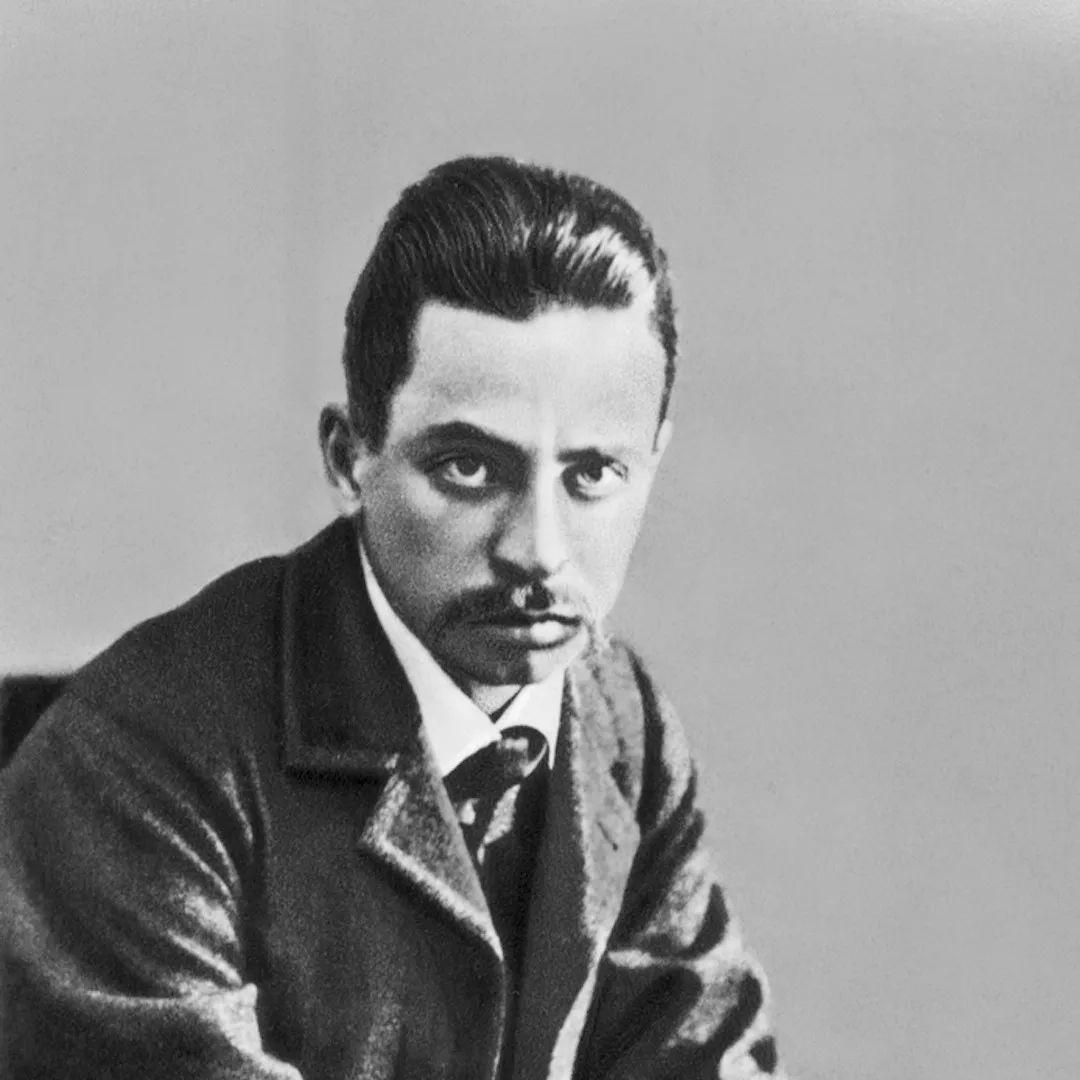Poetry begins with sensing the deep in the world, nature opening its layers and you opening your body to it. It is a meeting of senses, filaments & fragments, follicles & shapes, & growth & decay. Poetry is movement not moving as an animal solely but also movement as a tremor, a rhythm, a song deep inside tissue.

Rainer Maria Rilke
When you look at a poet like Rainer Maria Rilke whose sole focus was that which moved within the world, whether stone or cloud, whether divine or flesh, even the dead, you see this unveiling, a sudden world that you did not know could exist. In looking at what moves behind the eyelids of things, Rilke reveals a new world, a fragile unseen world. This world is not necessarily supernatural or spiritual. It is a world of senses but here instead of looking outward, it looks inward, instead of hearing the wind, it hears what moves the wind.
The first time I read Rilke, I did not understand him. I could not fathom what he was trying to say. I would say I was not listening to him, I was not seeing at what he was seeing. I was looking at this new world with old eyes. It took reading more and more of philosophy, psychology and more poetry for me to begin to grasp what Rilke meant when he said:
"His gaze has from the passing of the bars become so tired that it holds nothing anymore. It seems to him there are a thousand bars and behind a thousand bars no world." — The Panther.
The elegance of the lines notwithstanding, it is its interiority that holds me. This is a panther. There are so many ways by which a panther can be made manifest on a page but to see through the Panther's eyes. To feel the strength of the Panther's helplessness in captivity, that is poetry.
Poetry is and will always be an experience that lifts one away and out of the morass of daily living. It is poets like Rilke who through their often troubled life have given to us the body through which we relive the world as if we have lived it before. They are the ones who have surrendered their body to the fire so we can rise eternally out of our own pain with its knowledge in our eyes and its name on our tongues. Poetry is our relief.
My relief at least because I came to poetry as a supplicant. I came like someone discovering the divine for the first time. It was and will always be my prayer for healing, for therapy is also a function of poetry. It is poetry, the writing and reading of it, that has held me together, turned my gaze away from the easy end towards the light, towards heaven.
Maybe I am too emotional about the relationship between the divine and poetry but here is Rilke again, saying:
"The one so loved that from a single lyre came more lament than ever from lamenting women; that from lament a world arose, in which everything had second life: forest and valley and road and village, field and flock and stream; and that around this lament world, just as around the other earth, a sun turned and a star-filled silent heaven, a lament heaven with devastated stars—: This one so loved." — Orpheus. Eurydice. Hermes
How do you turn a myth into a story so personal it is as if the love, the loss, the hope, the tragedy of it all is the whole world's? This universality, as if the poem has been pulled out of the subconscious of the human race, that eternal pool where all the muses drink from, is what makes the poem so beautiful a body to live in.
Maybe I am just a fan of Rilke, which I am, but I am also a fan of what poetry can be; the possibility for empathy, for understanding, for patience. It is a bridge between that which has passed and that which is coming. It is the eternal present.
Good morning.